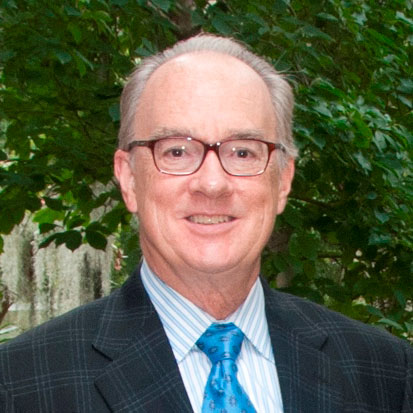 A Grateful Son's "Thank You"
A Grateful Son's "Thank You"
When asked where he was raised, Dr. Cavert McCorkle hesitates, looking for a short answer. As the son of a career Army officer, Dr. McCorkle spent his childhood living in Tokyo, Paris, New Jersey, North Carolina and in Washington, D.C. on two separate occasions before completing high school.
"We were constantly moving, experiencing new places, new people and new situations," he says.
Though the lifestyle may have seemed nomadic by civilian standards, Cavert and his older brother Philip, Jr. were kept grounded and on track by what he describes as a deeply stabilizing force: his parents.
His father served in World War II, the Korean War and the Vietnam War while his mother worked hard to build a warm, supportive and intellectually stimulating environment at home. Together, Mary and Philip McCorkle impressed upon their two sons the importance of education, hard work and sacrificing short-term comforts for the sake of long-term opportunities.
"We were very close," he says. "They were wonderful, caring, loving people who taught us about the important things in life: hard work, doing your best and leading a good life, honestly and with integrity. They were my guiding light."
The McCorkle family had had several doctors in its history, beginning with Cavert's great, great grandfather, John B. Hunter, who graduated from the Medical University in 1829. However, it was not until his mother recovered from a prolonged hospitalization from a surgical procedure that Cavert developed his own interest in medicine.
"We had just moved from Paris to Fort Bragg and I was in the 10th grade," he recalls. "I guess it was a very impressionable point in my life because the doctors, nurses and the hospital made a big impression on me. I admired everything about them."
Upon learning of his interest in medicine, Dr. McCorkle's parents placed their full emotional and financial support behind their son.
"It was because they wanted to, not because they had to," he says.
"They sacrificed and gave of themselves to support me through college and medical school and beyond in my career pursuit, without expecting a payback. They did the same for my brother."
The McCorkle brothers made the most of the opportunities provided by their parents. Philip, Jr. became an administrator of a large hospital in Grand Rapids, Michigan. Cavert graduated from the MUSC College of Medicine in 1972 and went on to build a successful career as a neurosurgeon, eventually earning board certification in neurological surgery and becoming a Fellow of the American College of Surgeons and a Fellow of the American Association of Neurological Surgeons.
During the course of his 31-year career, Dr. McCorkle cared for an extraordinary number of both surgical and nonsurgical patients, an experience that he describes as "an incredible, God-given opportunity."
Upon nearing retirement, he looked back on his successful career and began thinking of a way to thank his parents for making it possible. While working on his estate planning, he decided to make provisions that would allow him to give back to the people and institutions that helped him achieve what he had accomplished during his lifetime.
"I benefitted a tremendous amount from those who came before me and I felt that it was important to give back," he says. "I shared that with my parents and promised them that I would do something to honor them."
In his estate plans, he provided for the establishment of two endowed scholarships in the MUSC College of Medicine in his parents' honor. Because the scholarship funds are endowed, they will exist in perpetuity, giving Dr. McCorkle a permanent way to honor his parents' memory.
Also in his legacy planned giving he provided for the creation of a Distinguished Endowed Chair in Neurological Surgery, further strengthening the Department of Neurosurgery by helping it recruit and support a nationally prominent authority in the field.
Today, Dr. McCorkle says his planned gifts to MUSC helped fulfill values-driven philanthropic goals that became even more important to him with the passing of his father in 2009 and mother in 2011.
"I wanted to use my estate to say something about the things that were important to me. I wanted to thank my parents. I wanted to continue the field of medicine and help produce the next generation of physicians. And I wanted to give back to the institutions that helped me get where I am. In my view, these endowments will enable me to achieve all these goals and more."



.jpg)